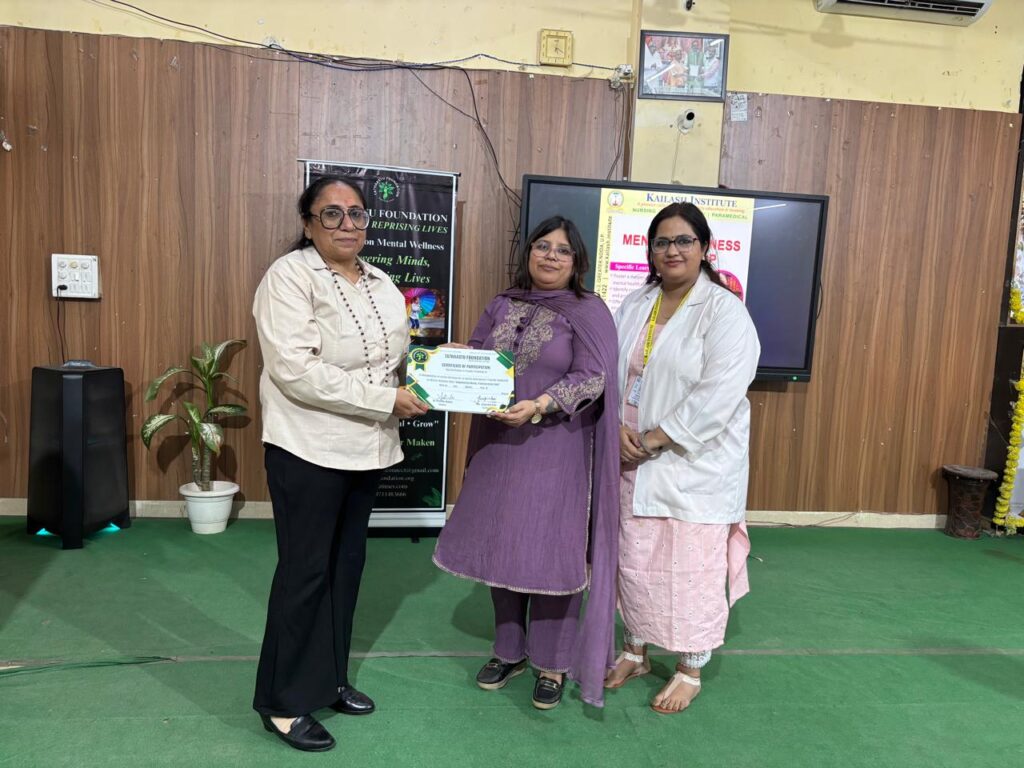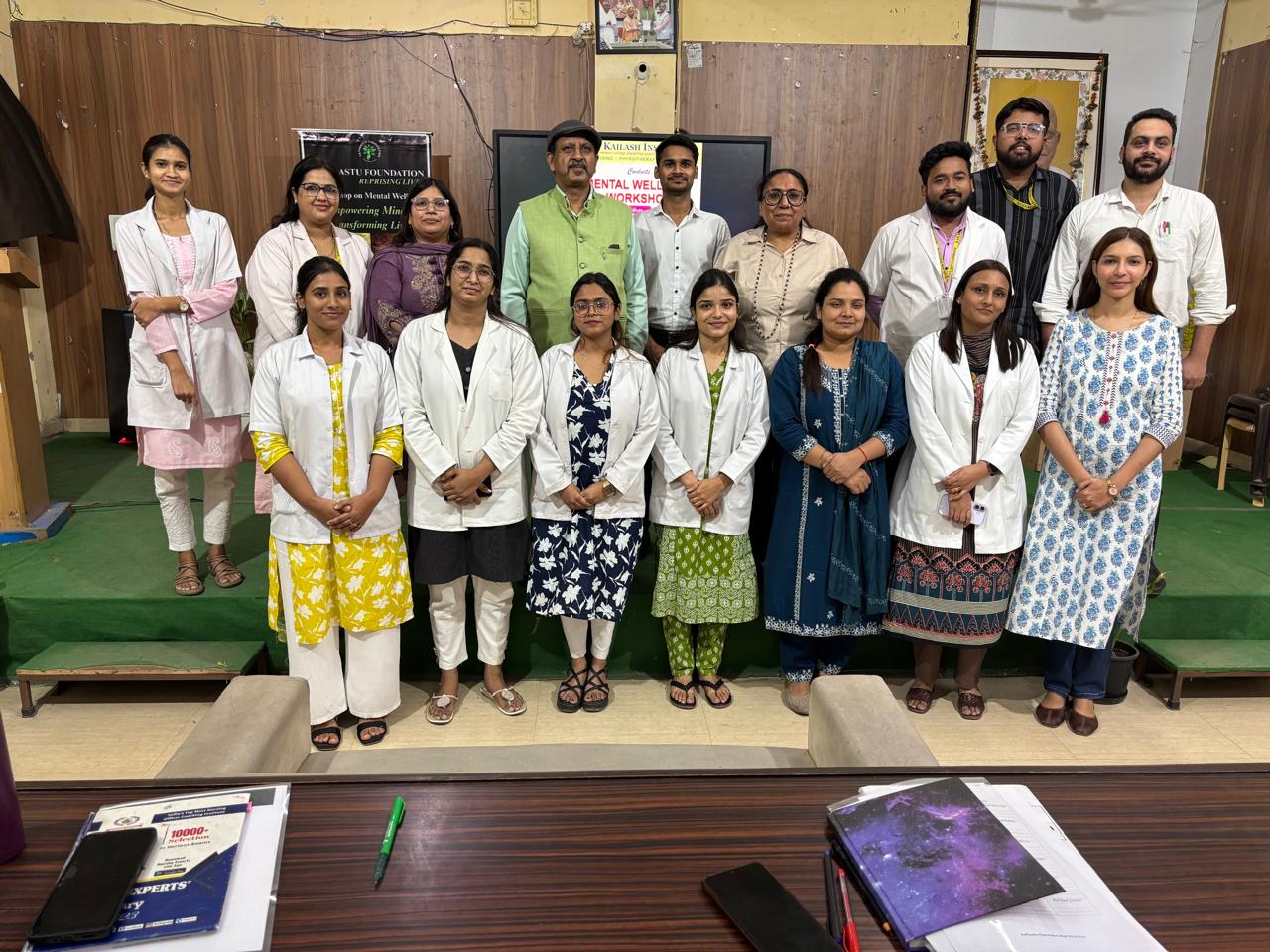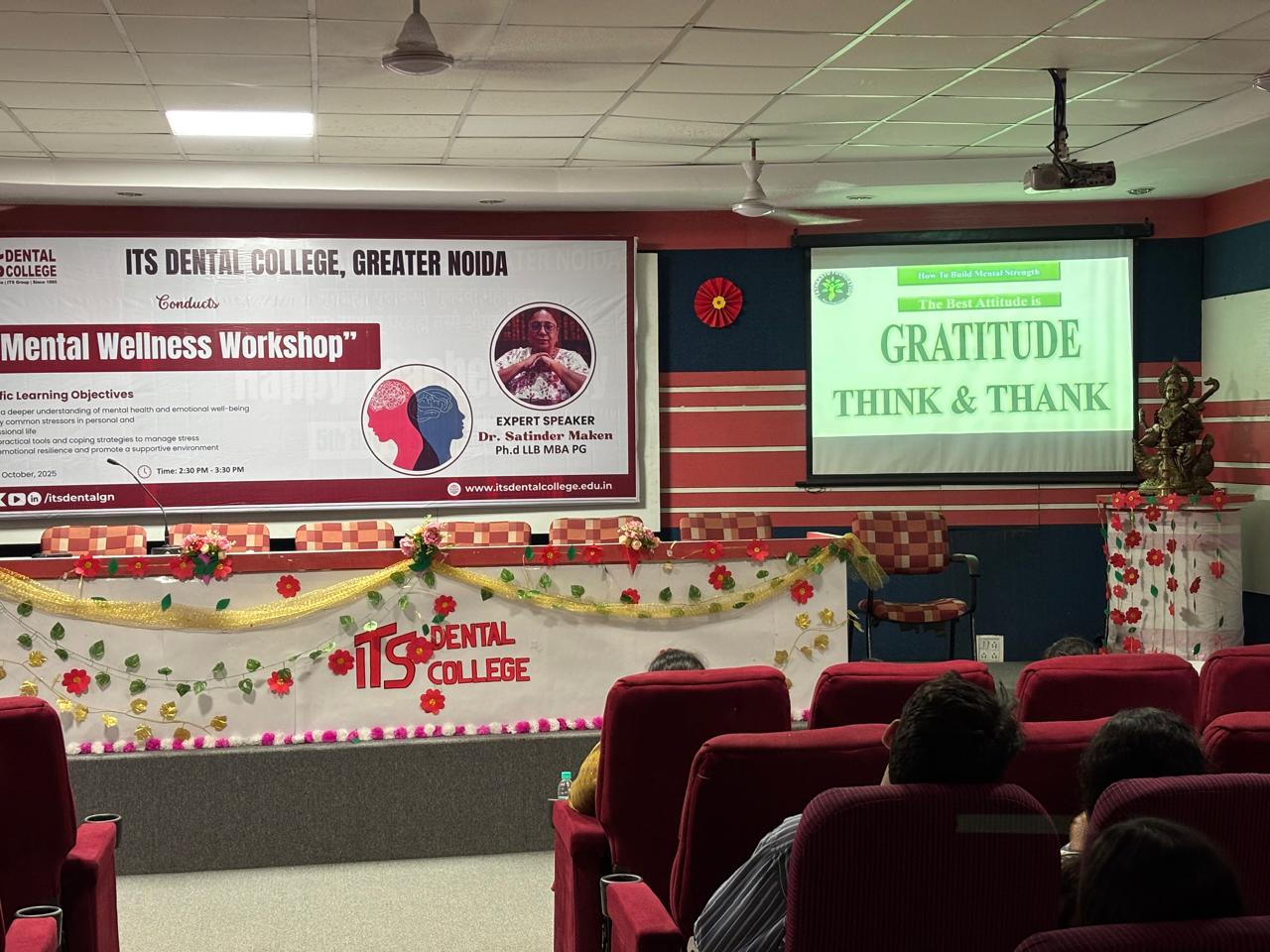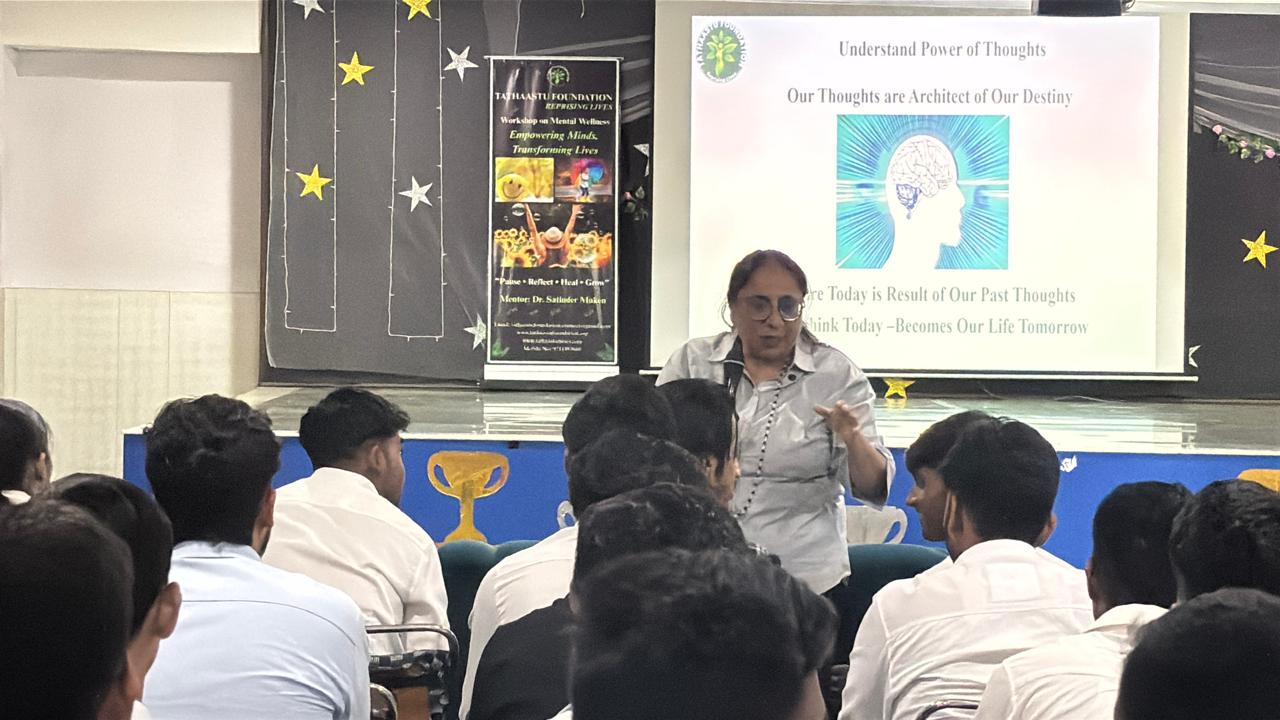A Faculty Development Program led by Dr. Satinder Maken focused on balancing mind, work, and relationships, emphasizing mental health as the cornerstone of effective teaching.
Tathaastu Times Desk Greater Noida, 5 November, 2005
Tathaastu Foundation, an organization committed to mental health and emotional well-being, successfully organized a Faculty Development Program (FDP) at Kailash Institute of Nursing and Paramedical Sciences, Greater Noida. The session was designed to address one of the most important yet often overlooked aspects of academic life — the mental and emotional wellness of teachers.
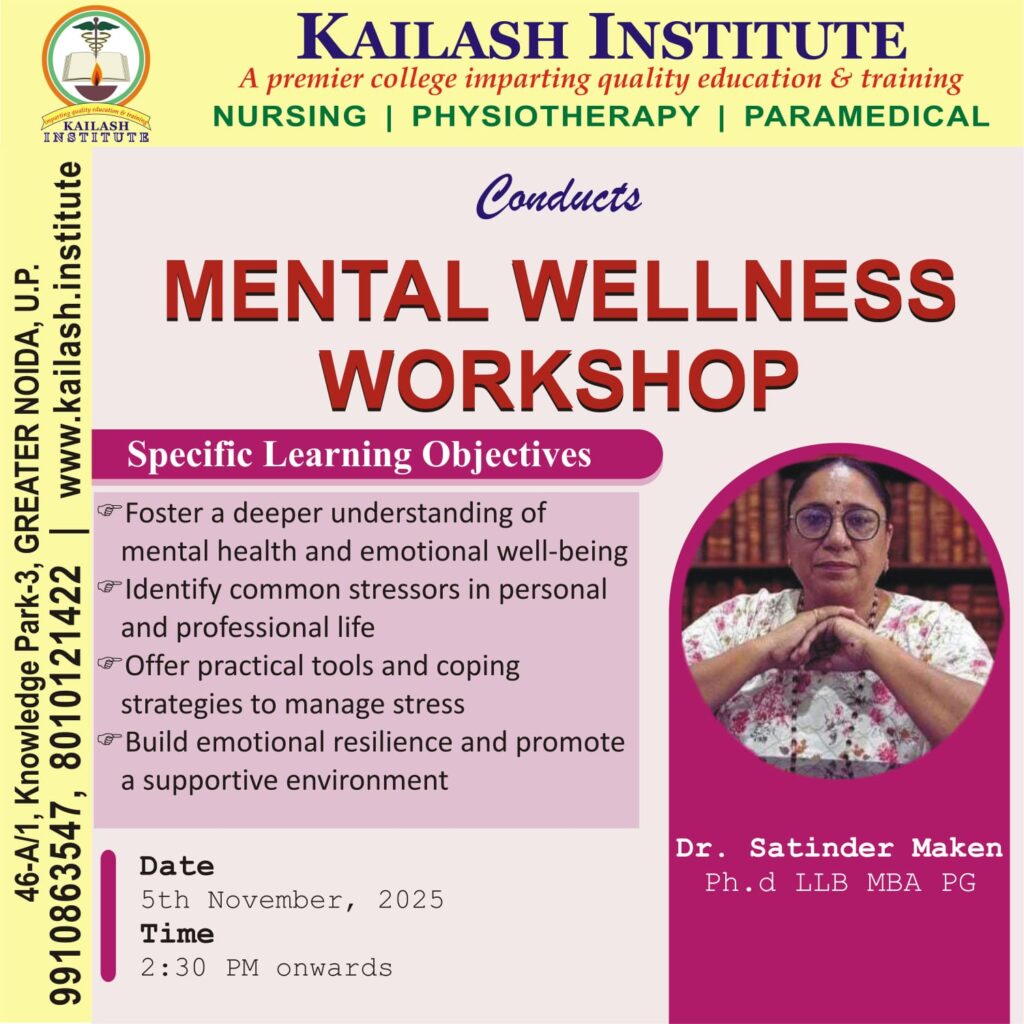
The keynote session was delivered by Dr. Satinder Maken, Founder of Tathaastu Foundation, who brought her vast experience and compassionate perspective to the discussion on faculty wellness. The program began with a warm welcome extended by Professor Sakshi Srivastava, followed by opening remarks from the dignitaries, including Mr. Sandeep Goel, Director of the Institute, and Mrs. Monika, Principal of Kailash Institute. The session concluded with a heartfelt gesture of gratitude as Mr. Sandeep Goel presented a token of memory to Dr. Maken in appreciation of her valuable contribution.
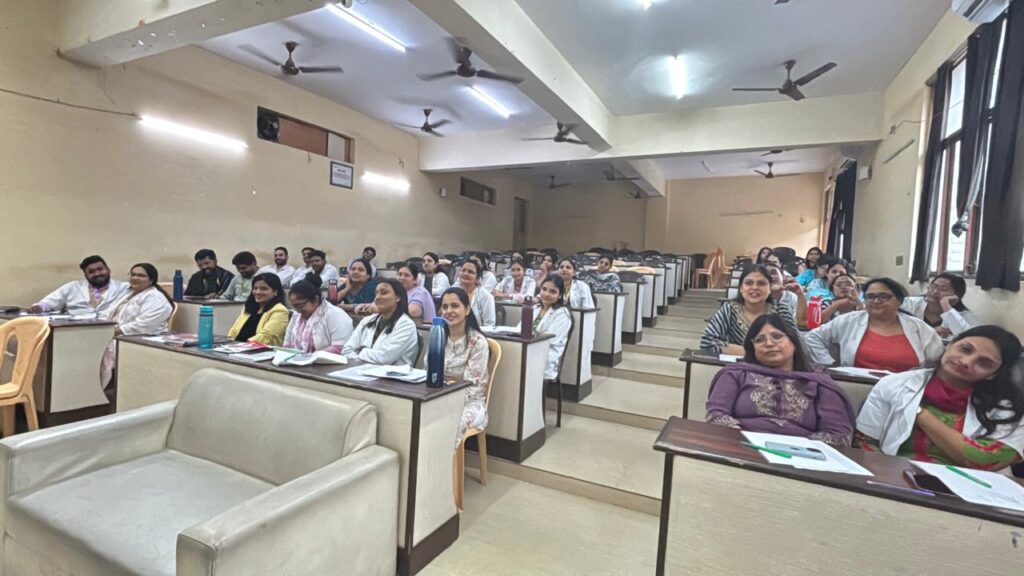
In her talk, Dr. Maken highlighted the critical need for mental wellness among faculty members, noting that educators often serve as emotional anchors for their students while simultaneously managing professional duties and personal responsibilities. She observed that teaching is not just an intellectual profession but an emotional one, where educators continuously balance the dual demands of home and work, leaving little time for self-care. This constant juggling can lead to fatigue, anxiety, and burnout — issues that need to be addressed not through suppression but through awareness and emotional literacy.
Dr. Maken emphasized that mental wellness for faculty begins with understanding the science of the mind — recognizing stress triggers, emotional patterns, and behavioral responses. She encouraged teachers to apply scientific and reflective approaches to identify and define their mental health challenges, just as they would analyze a problem in their academic field. She shared that acknowledging emotions, identifying stressors, and seeking healthy outlets are the first steps toward emotional regulation.
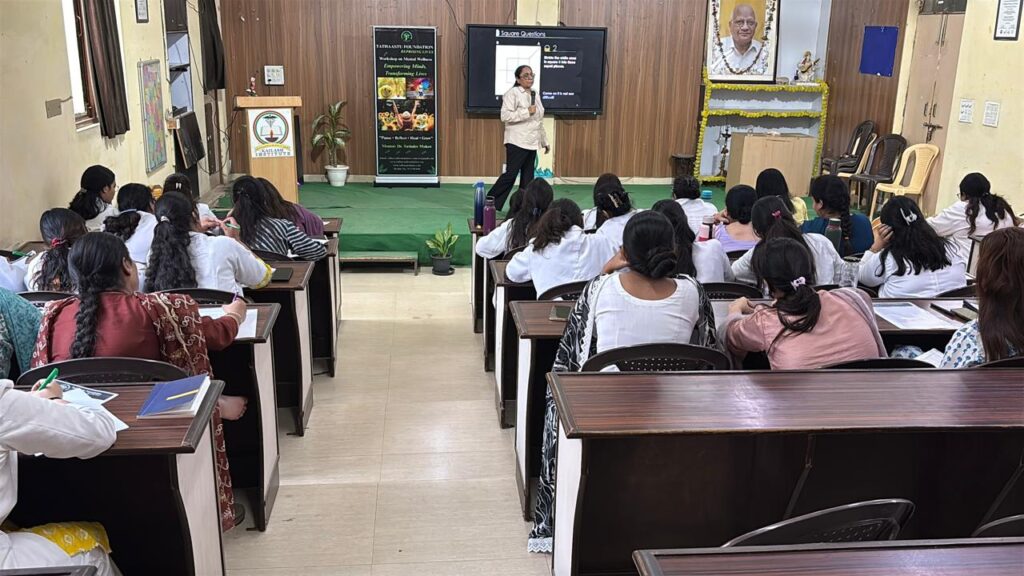
The workshop also delved into the importance of healthy relationships in the workplace. Dr. Maken explained how professional harmony depends not only on communication skills but also on empathy, patience, and mutual respect. She discussed practical strategies to handle interpersonal conflicts, manage expectations, and create a positive, collaborative atmosphere within departments. Faculty members actively participated in discussions and shared real-life experiences about maintaining equilibrium while interacting with students, colleagues, and administration.
A significant portion of the session focused on stress management at work — a concern deeply relevant to educators. Dr. Maken guided the participants through simple yet effective techniques to manage stress, such as breathing exercises, mindfulness practices, positive self-talk, and time management. She reiterated that managing stress is not about avoiding challenges but about building the inner strength to respond to them wisely. She remarked that just as a stitch in time saves nine, addressing mental strain early can prevent long-term emotional exhaustion.
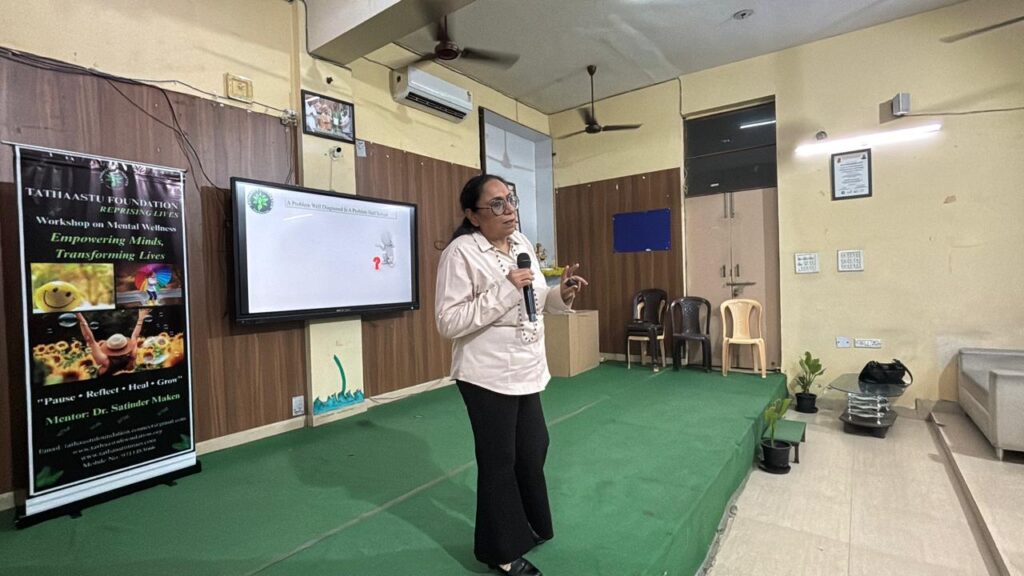
Throughout the program, Dr. Maken’s compassionate and interactive approach created a safe space for participants to reflect on their own mental well-being. Many faculty members acknowledged that they often prioritize students and work over their own mental health, and they appreciated the opportunity to gain practical tools for self-care and balance.
The dignitaries of the institute, including Director Mr. Sandeep Goel, Principal Mrs. Monika , and Professor Sakshi Srivastava, expressed their appreciation for Tathaastu Foundation’s initiative, noting that mental wellness sessions for faculty are essential in today’s demanding educational environment. They emphasized that a mentally healthy teacher creates a healthy learning atmosphere, which directly benefits students’ growth and development.
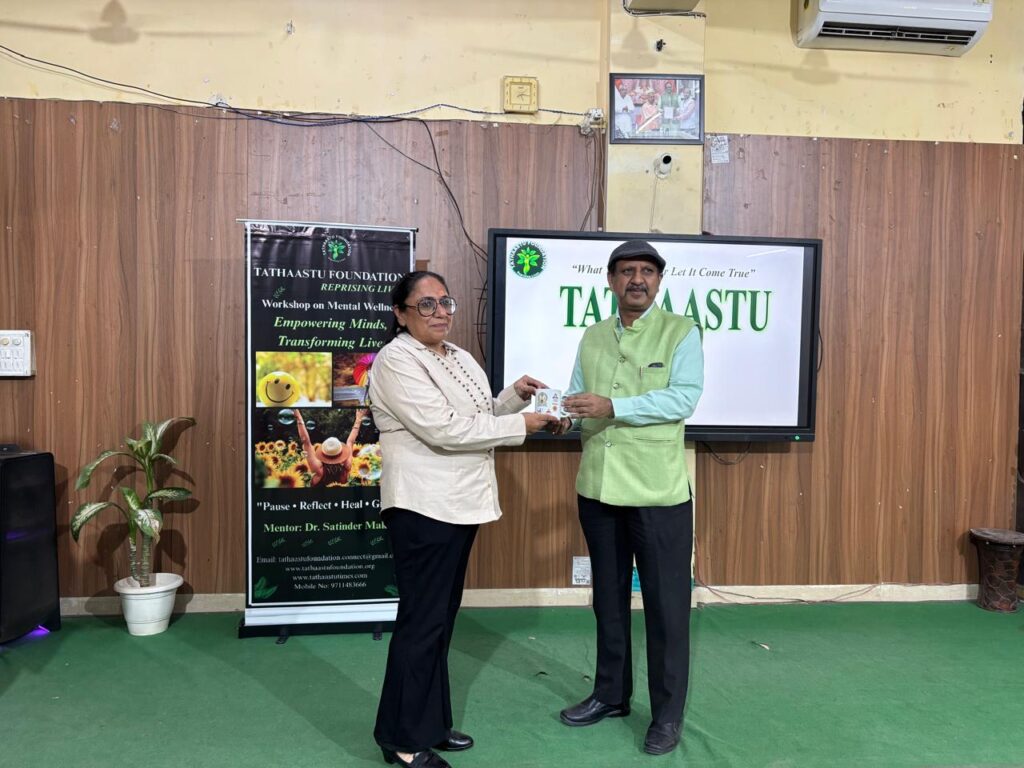
The Faculty Development Program at Kailash Institute served as a meaningful reminder that mental wellness is the foundation of effective teaching. By nurturing the minds that nurture others, Tathaastu Foundation continues to strengthen its mission of fostering emotional resilience, compassion, and awareness within educational institutions and beyond.
